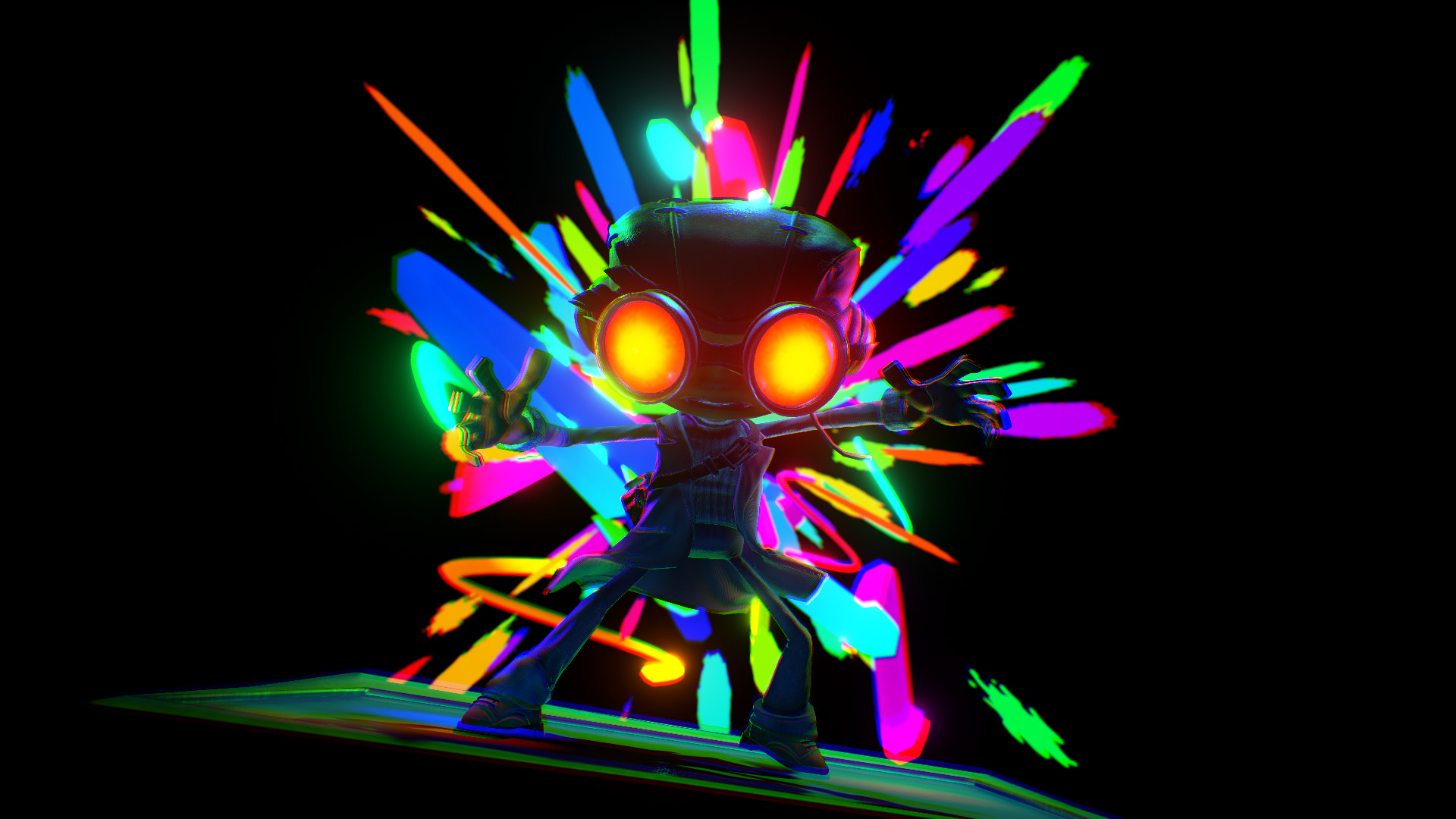
Psychonauts 2 shouldn't exist. No amount of mental manipulation could dissuade me from believing that now. This association was formed early in my play session with Psychonauts 2 and the absurdity of it all was enshrined as my hours with it came to a close. It's a truly transformative sequel that's more than 15 years in the making, partially funded by fans, and published by the platform holder that almost killed both the studio and series back in 2005. It's a story that feels uniquely Double Fine. Then again, perhaps all game creation is an exercise in mind over matter.
"It's a miracle that any game gets made. The world does not want games to happen. So we do everything we can to make them happen," laughs Tim Schafer, studio head at Double Fine. "I've always felt that the way to get through that, especially with something that a lot of people know and love, is to feel like you're being true to the game itself. If you can remember the heart of the characters, the themes of the world, and the feeling of it... if you can go back to that same part of your mind and be true to it, then I think you'll be fine. That's how we approached Psychonauts 2, anyway."
Mind Trip
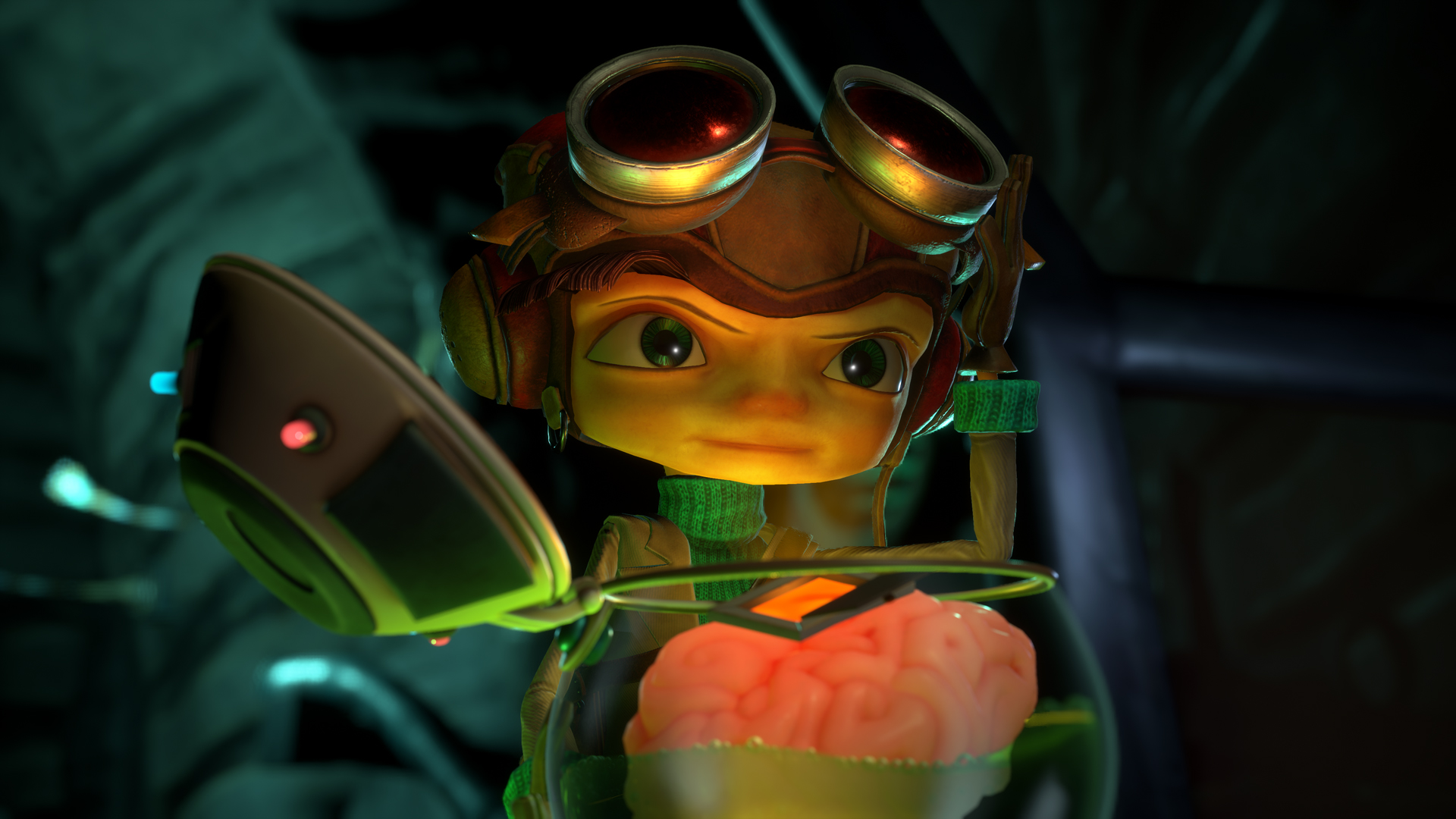
Psychonauts 2 is an aggressively impressive platform-adventure game, weaving effortlessly between one consciousness-expanding experience to the next. From the muddled mind of amateur brain surgeon Dr. Loboto to the sprawling expanse of the Psychonauts headquarters – The Motherlobe serving as a launching pad into shattered psyches. From there: The Lady Luctopus Casino highlights the dangers of mental manipulation and addiction, Compton's Cookoff lets us explore a manifestation of acute anxiety by way of an unhinged reality cooking show, while Cassie's Collection projects us into an examination of self-image assertions in a papercraft world. Each of these multi-hour levels feel like self-contained game spaces, as if they could be the setting for an entire experience rather than a stop for Raz as he makes his way through the Psychonauts' internship program.
That Psychonauts 2 is able to do this, shift between tones and art styles so freely – without sacrificing its continuity or composure – is impressive. It's also intentional. If you aren't familiar with the world of Psychonauts, Razputin Aquato (circus acrobat turned psychic warrior) can astrally project himself into another person's brainscape, exploring their head space and battle with the negative projections within it. A core focus for Lisette Titre-Montgomery, art director at Double Fine, has been in bringing these twisting areas to life. "We wanted to make sure that every time you go into someone's brain, it feels like you're in a different world. That's because our philosophy was that every human is different, therefore every human brain is different."
"We had to come up with a process that made that possible." While Schafer and other members of Double Fine have been working at the studio since its inception, Titre-Montgomery joined in 2017 following Psychonauts 2's successful crowdfunding campaign. Getting up-to-speed with Double Fine's "chaotic" development style has been a challenge worth undertaking. "Typically, when I've worked on previous games, it's more of an assembly line process: where the art goes through one department to the next."
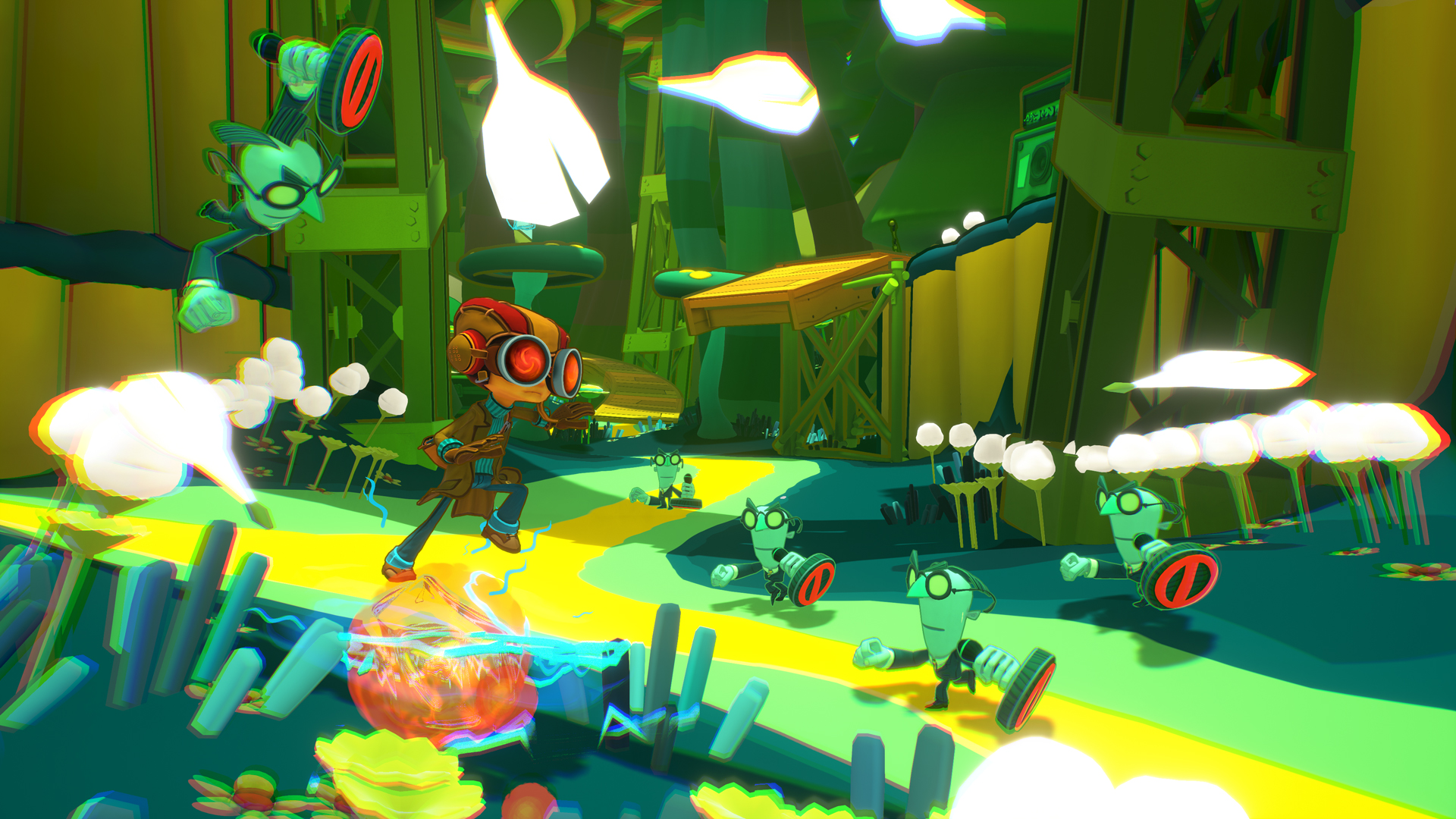
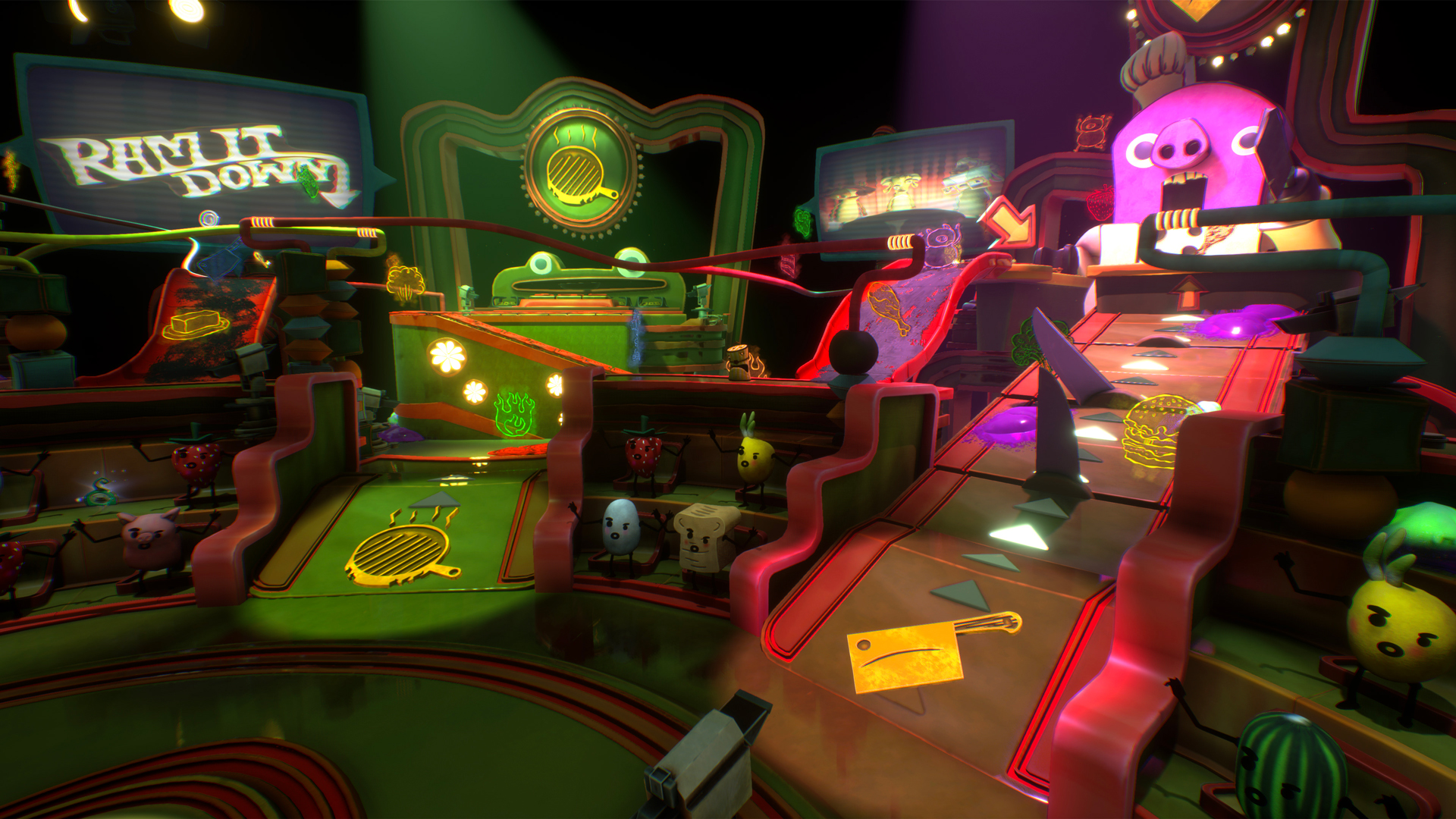
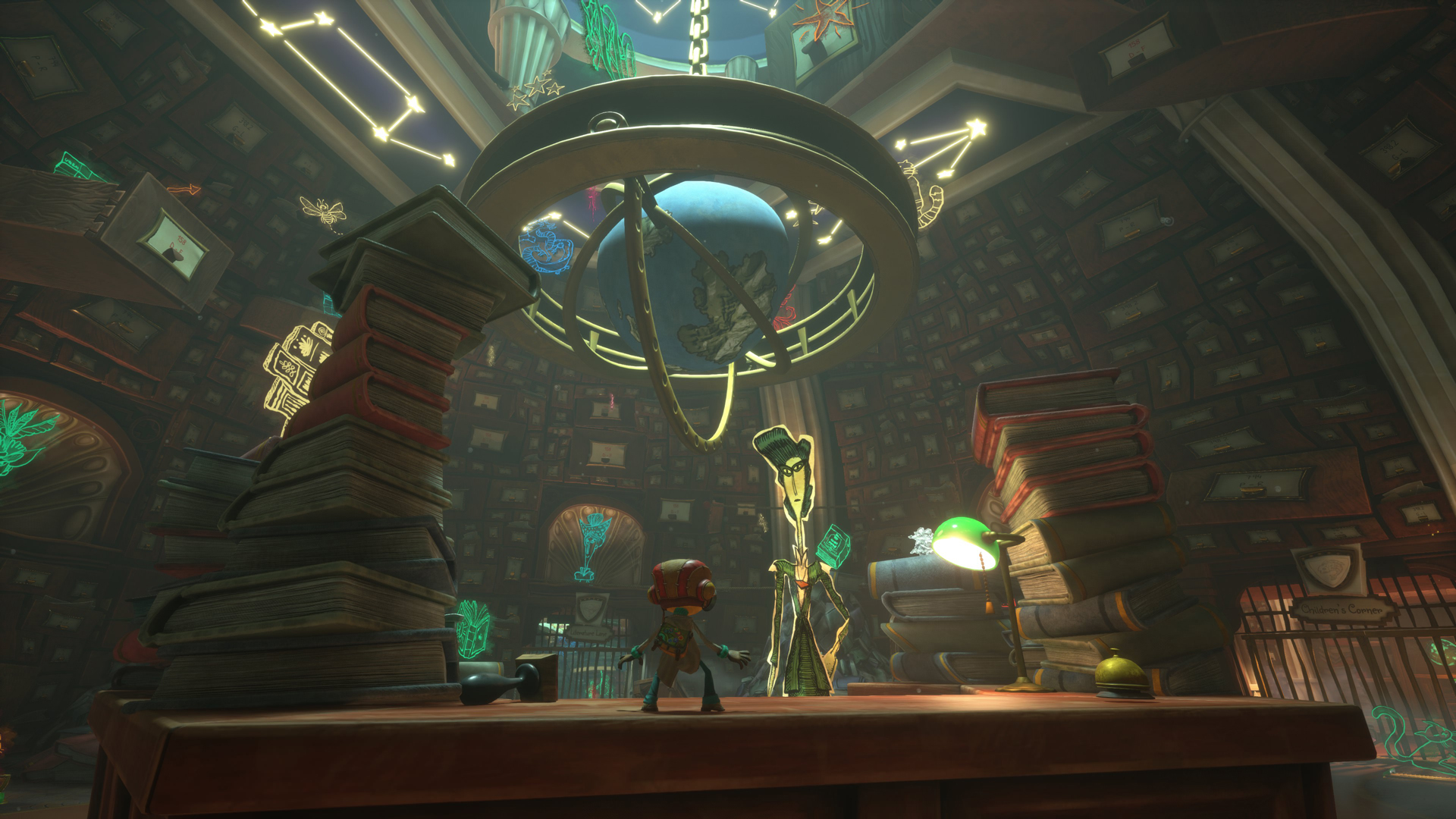
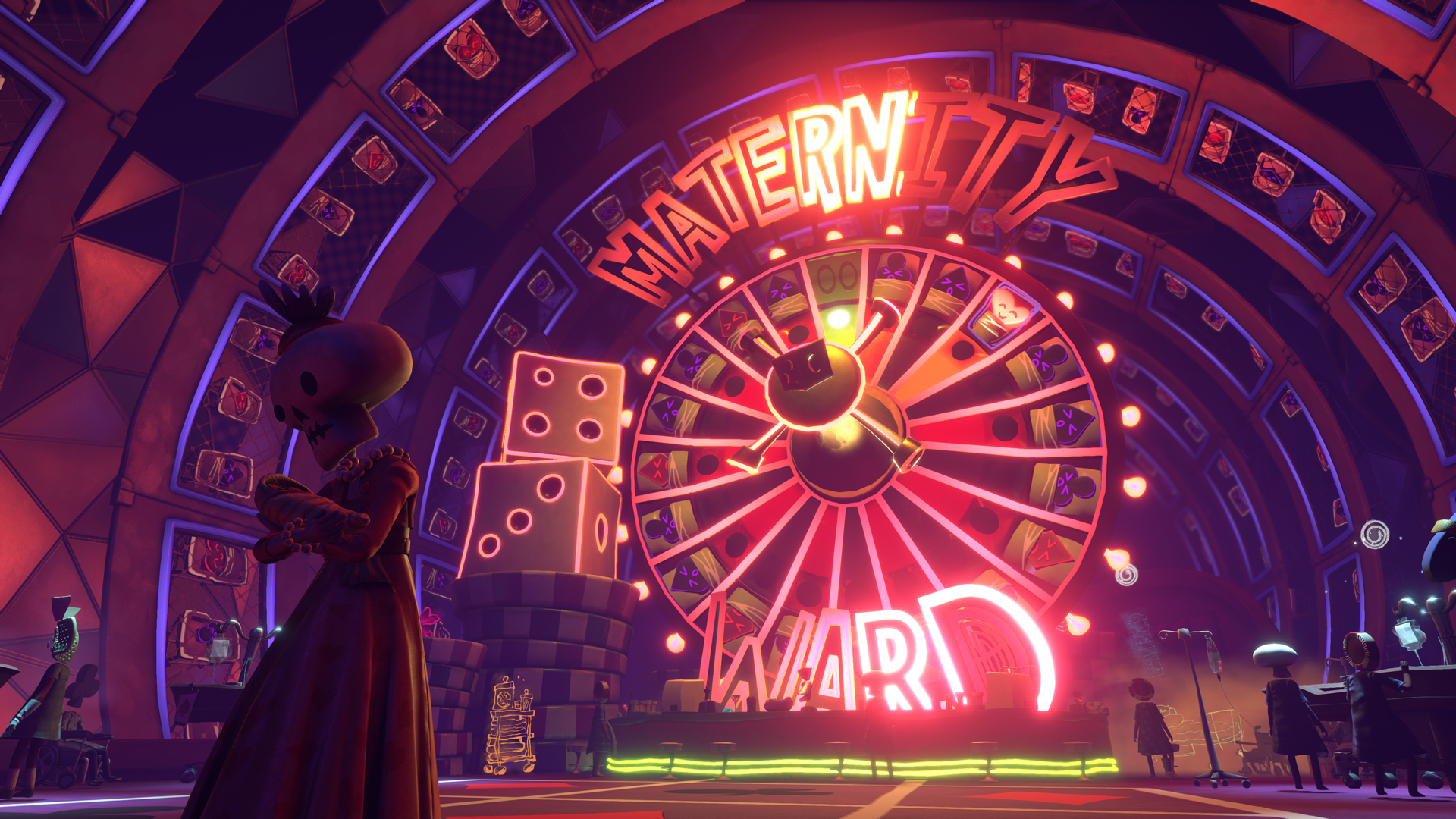
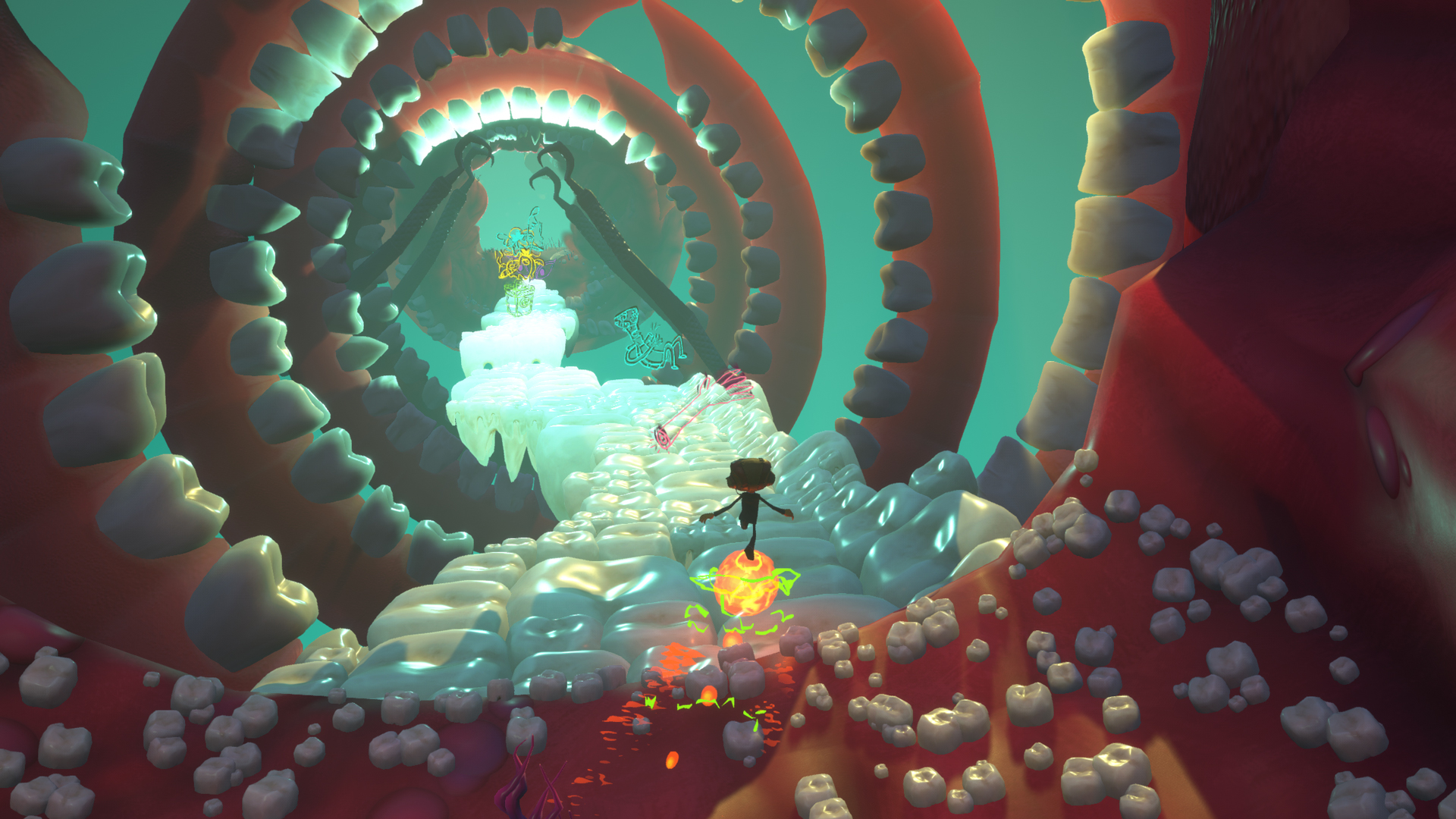
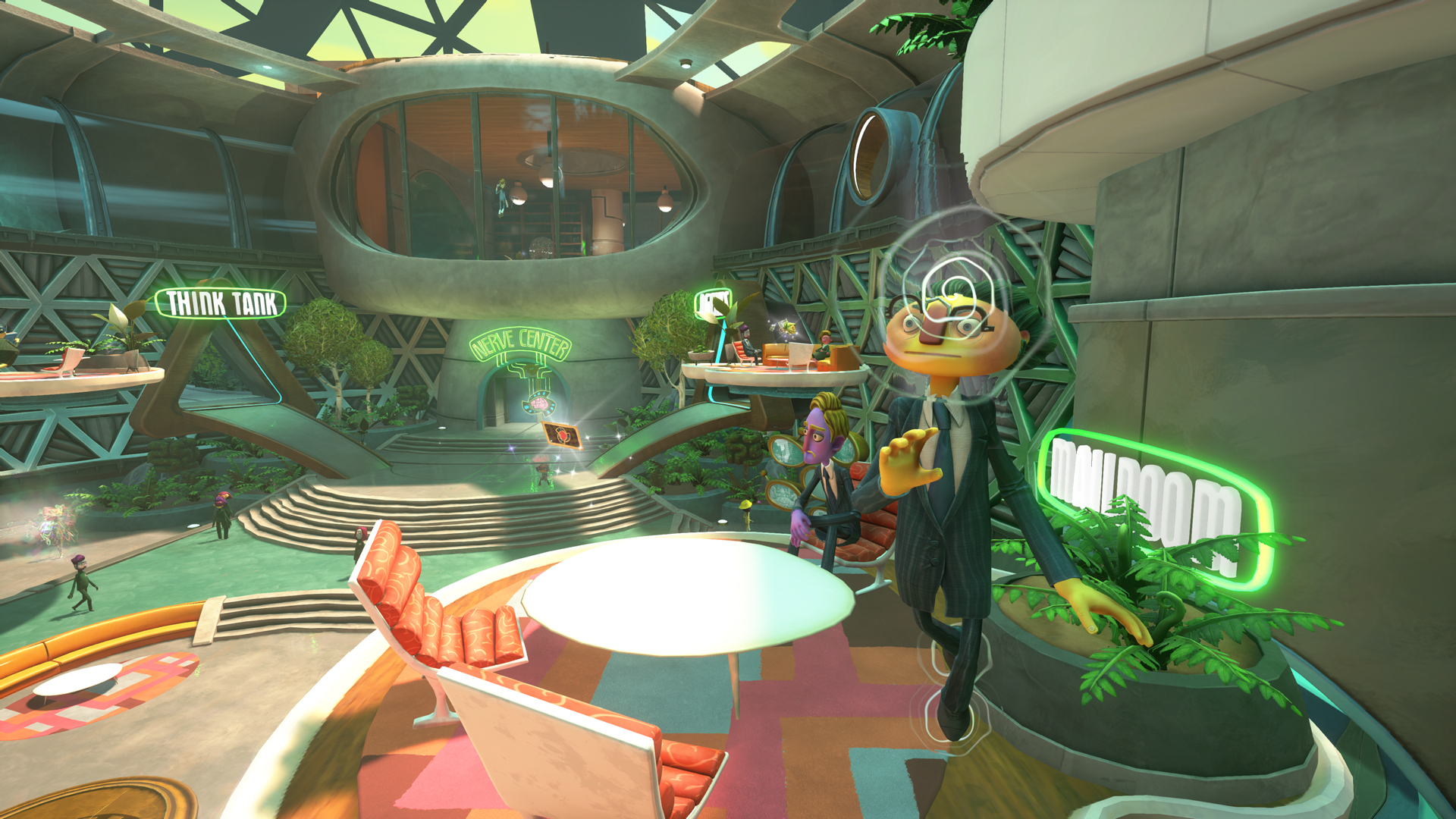
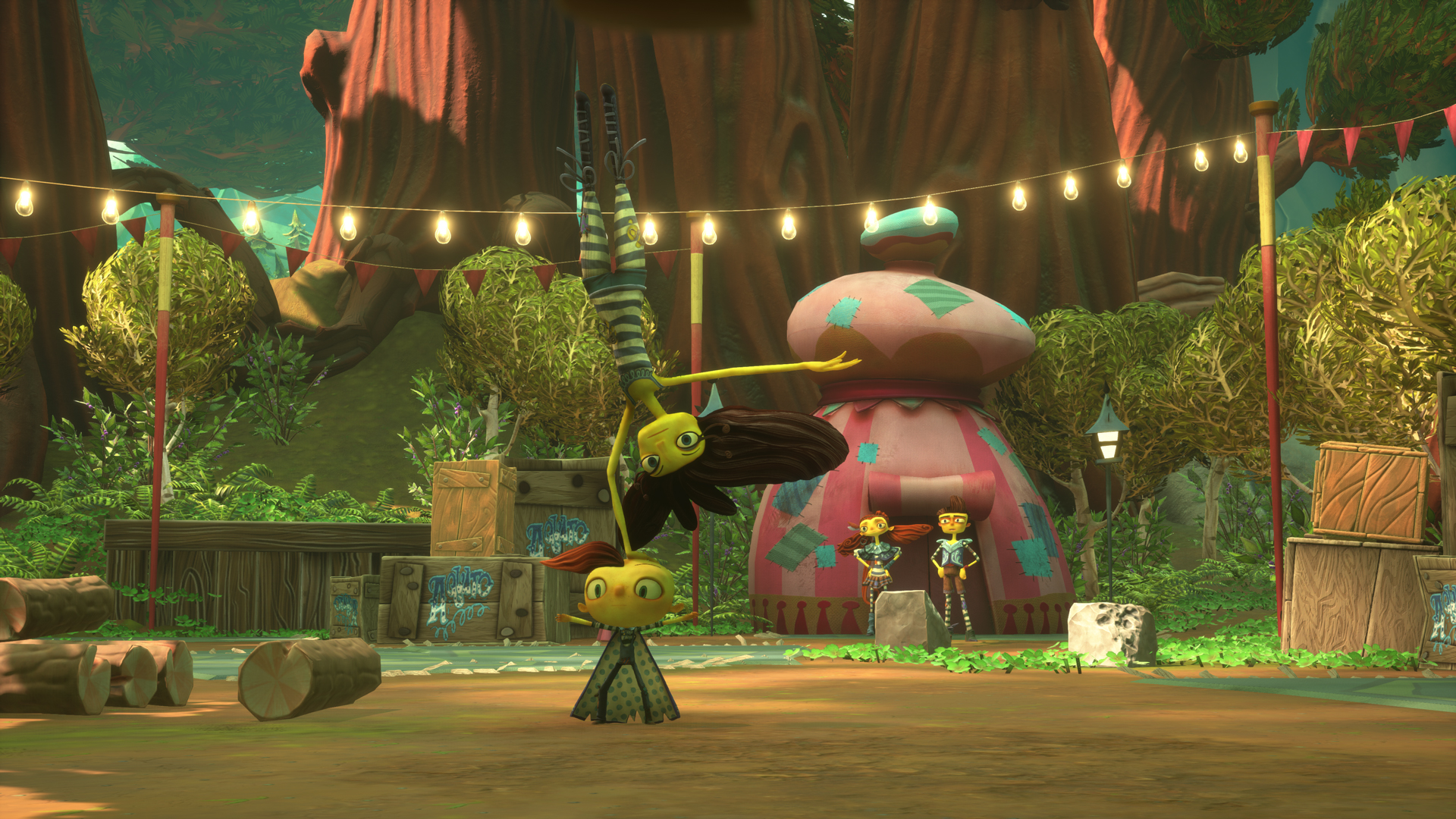
"We wanted to make sure that every time you go into someone's brain, it feels like you're in a different world."
Lisette Titre-Montgomery, art director
"For our levels, we really had to completely change how we made things. We took more of a core strike team approach, where we had a cross-disciplinee team with a level lead, a level designer, level artist, concept artist, and animators anywhere we needed to support what that brain could look like," she says. "It was really rethinking how we approach the creative process. It's highly collaborative; no one department owned the vision for something."
That collaborative atmosphere is palpable when playing Psychonauts 2. You may not be consciously aware of why, but there's definitely something about this game that feels different. It's big and it is bold, with each of the brain levels arriving with their own distinct vibe and message. It's quite the creation. Titre-Montgomery hopes players recognise that. "You know, I've never had to go through such an intense creative experience. Every brain level had its own pre-production – most [developers] don't get to do that."
Weekly digests, tales from the communities you love, and more
"I think when people play, they're going to have such a wide breadth of experience in the brain levels. This is going to be one of those games that people get all the way through because they want to see what's in there, because they know that every level is going to be different. I think that's what's really going to stand out, just the breadth of the experience that people are going to have in this one game. Oh," she says, "and it's funny as hell." Schafer smiles as she says this, adding, "Yeah, I hope it makes people laugh."
Measuring the LPM
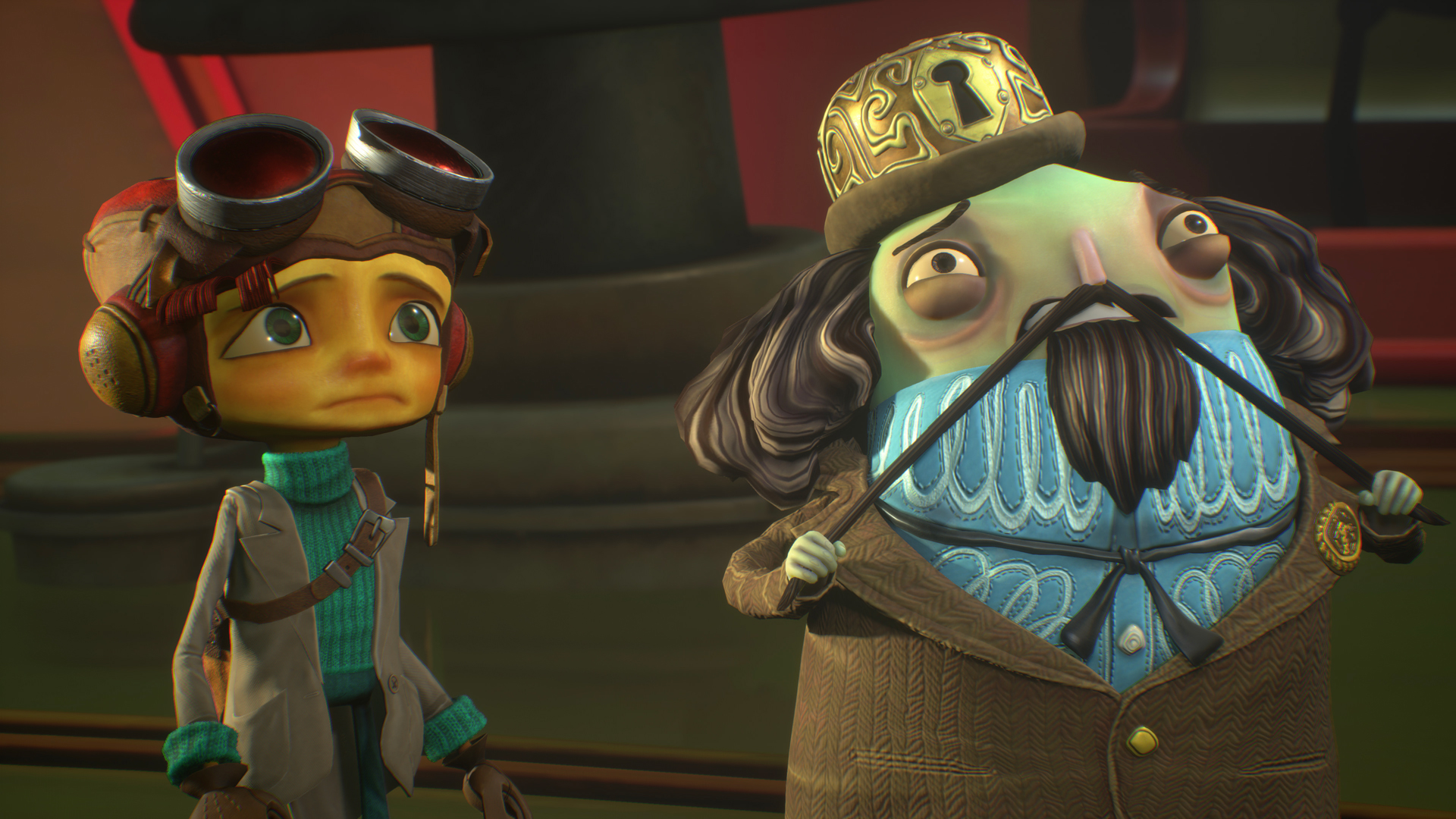
LPM is a metric that's rarely used to measure anything in this industry. Video games are a lot of things, but routinely funny is not one of them – particularly in AAA. Psychonauts 2 is off the charts with its laughs per minute. Not that you'll be able to point to any one joke or instance as evidence of that. Psychonauts 2's humor cascades through everything: the writing, animation, enemy and world design, cinematics, voice acting, scenario outlines, and more. Psychonauts 2 is the sort of game that will have you quietly chuckling to yourself from the second you pick up the controller.
"If people want to play dark and gritty games, I think that's great. But I think there should be comedy games and there should be romantic games – it should be at least as varied as when you go to a movie theater, think about all the different choices that you have," says Schafer, as we discuss why so few games can be genre-defined as comedies in the modern era. He believes it might have something to do with the risk inherent in humor.
"If an action film is bad it can still make money overseas. Things will still blow up and so a certain amount of spectacle is still entertaining. But when a comedy is bad? It's nothing," he laughs. "If it's bad, if it's not funny, it's just not entertaining in any way – it's awkwardness and it's pain. So I think there's that risk to it. But I think it would be riskier for Double Fine to try and make a super, super serious game because we would be unable to stop the jokes from sneaking in."
At times, Psychonauts 2 gives off this aura of improvisational sketch comedy. It's slapstick, reactive, and unrestrained, delivered with a confidence that you don't often see outside of adventure games of the '90s. Titre-Montgomery tells me that the foundation of improv was actually built into the way the studio works. "We would get these writing prompts from Tim – this is this character's problem, these are the things they may encounter, so what would that look like as a world? Then we immediately get to brainstorming. We start doing our 'Yes, and…' brainstorms, start drawing, and coming up with content."
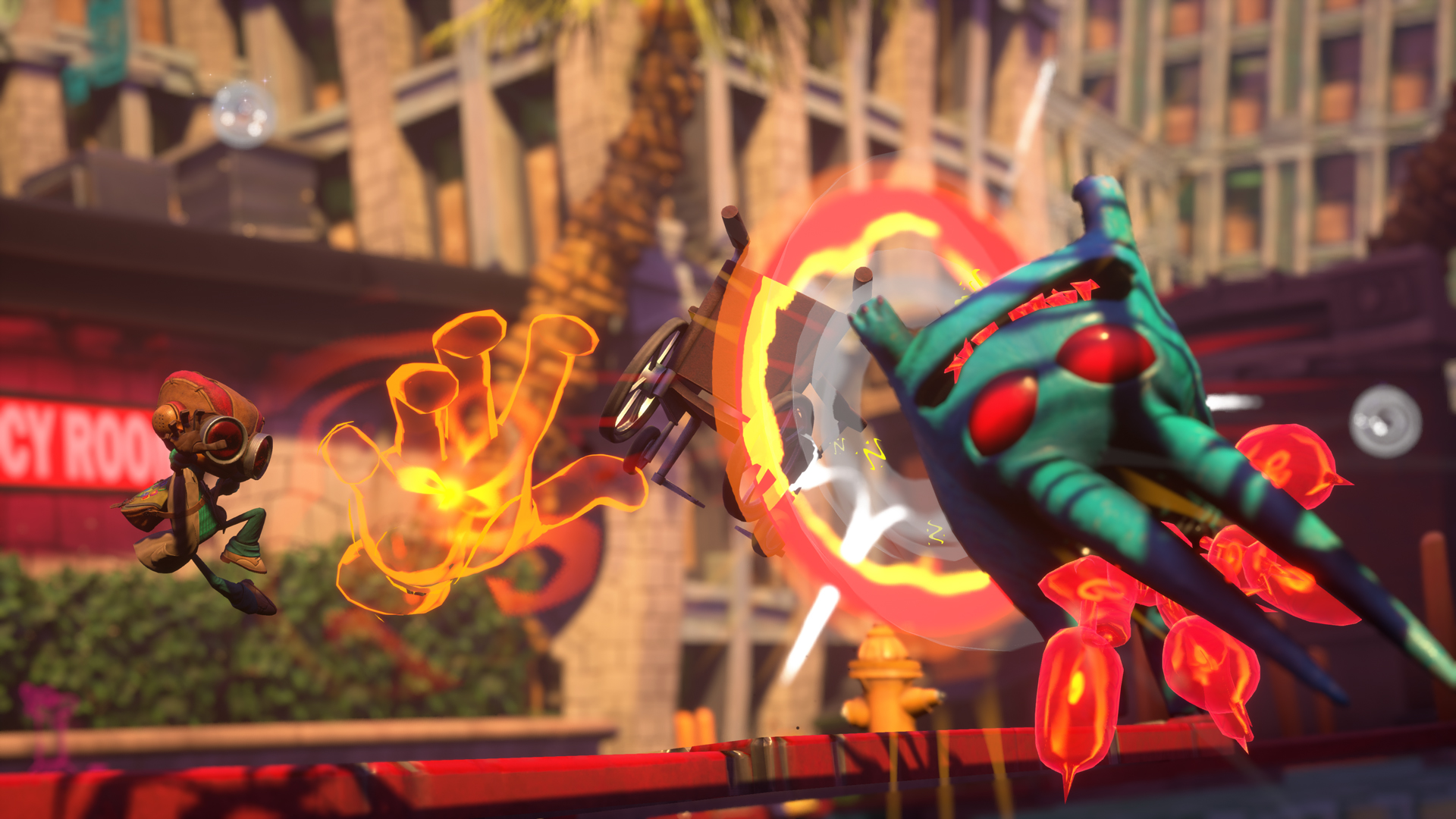
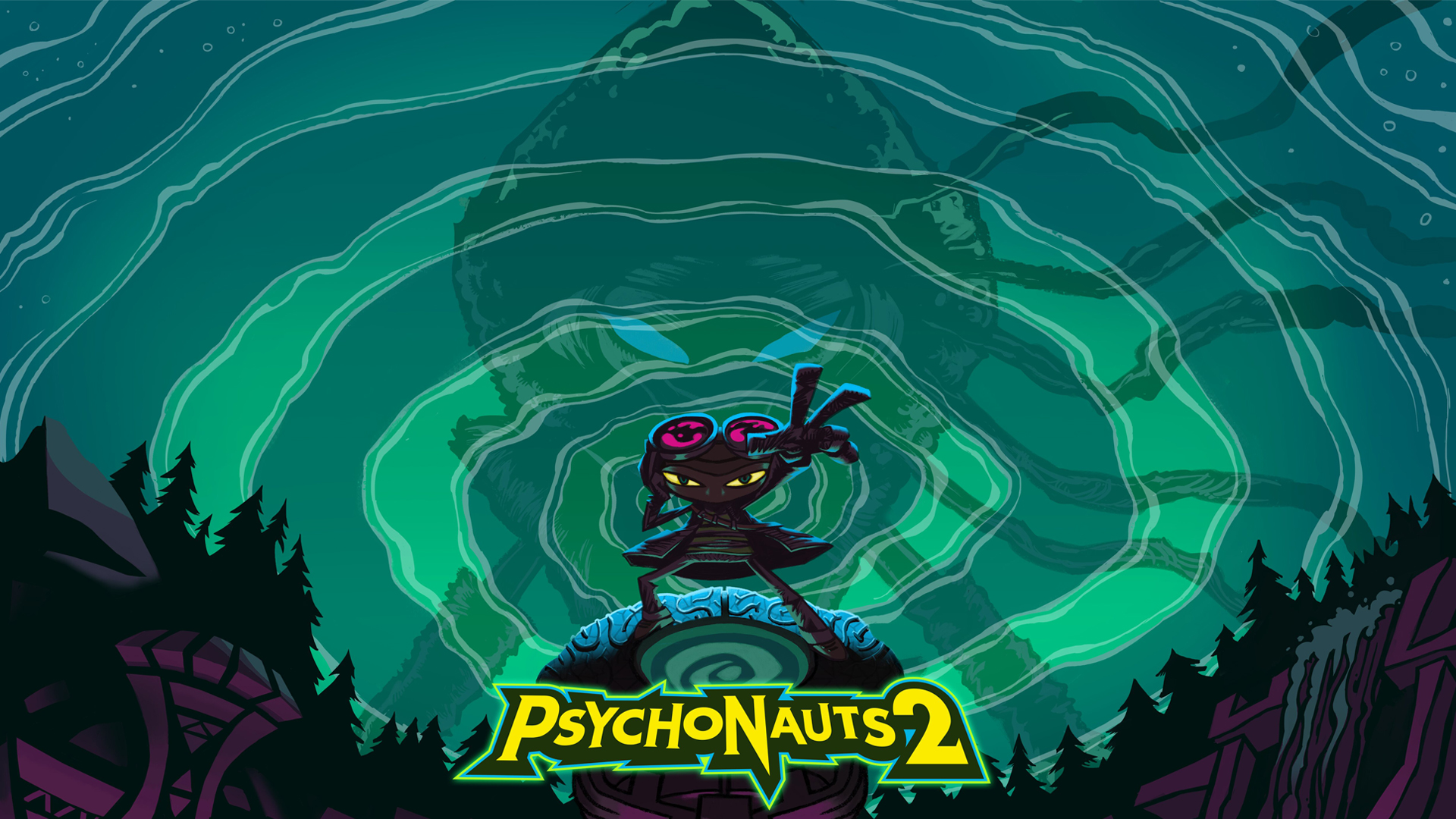
Psychonauts 2 is going to cast you the director for a weird unaired Cartoon Network show from the late '90s when it launches August 25, 2021. Find out more in our Psychonauts 2 hands-on preview.
The "Yes, and…" method in improv posits that a participant in the group should always accept what another participant has suggested or stated with a resounding 'yes' and then expand on it with an 'and'. Yes, Raz is forced into a cook-off to stabilize a mind, and the live-studio audience are all anthropomorphized ingredients that need to be used in each of the dishes. Knowing that this is the foundation for Psychonauts 2's design makes a lot of sense; it feels too fluid and organic to have been ripped directly from a design document.
"From there," Titre-Montgomery continues, "our designers start prototyping wacky interactions or the environment artists do pretty corners of a world to see if we can get a really crazy style to work across a space. We kind of go through iteration as improv, and then when we land on something we say 'Okay, I think this can be a large level', and then that improv goes on for months until we finish that level," she laughs.
"At Double Fine, and as games get more complicated, the struggle is in constantly re-learning how we can structure our production to keep these pockets of invention open. Because as the games get more expensive, the risks get higher. With more people on the team, you can't take like 70 people and go 'Let's try this thing out, who knows… oh, it's not that funny, nevermind!'" says Schafer, crediting his judgement in this matter as something he learned working at LucasArts, where jokes could be told over lunch and be in a game like The Secret of Monkey Island an hour later. "Being able to see something that sounds like a silly idea all the way through to it being something that we're going to spend money on – to be confident in really silly ideas like that– is kind of a learned skill."
Wrestling with that, Schafer tells me, is a constant battle, particularly with a production that has stretched over five years. "Even with the best joke, the team will laugh at it once or maybe twice. But eventually you're just watching the same jokes in the weeklies and you're like, 'yep, uh huh.' But with Psychonauts 2, the writing adds something, and then the acting adds something, and then the character designers add something, and then the animators come in and they add more jokes. So it has a way of staying funny throughout development, because of all the different disciplines that contribute to it."
End of the line
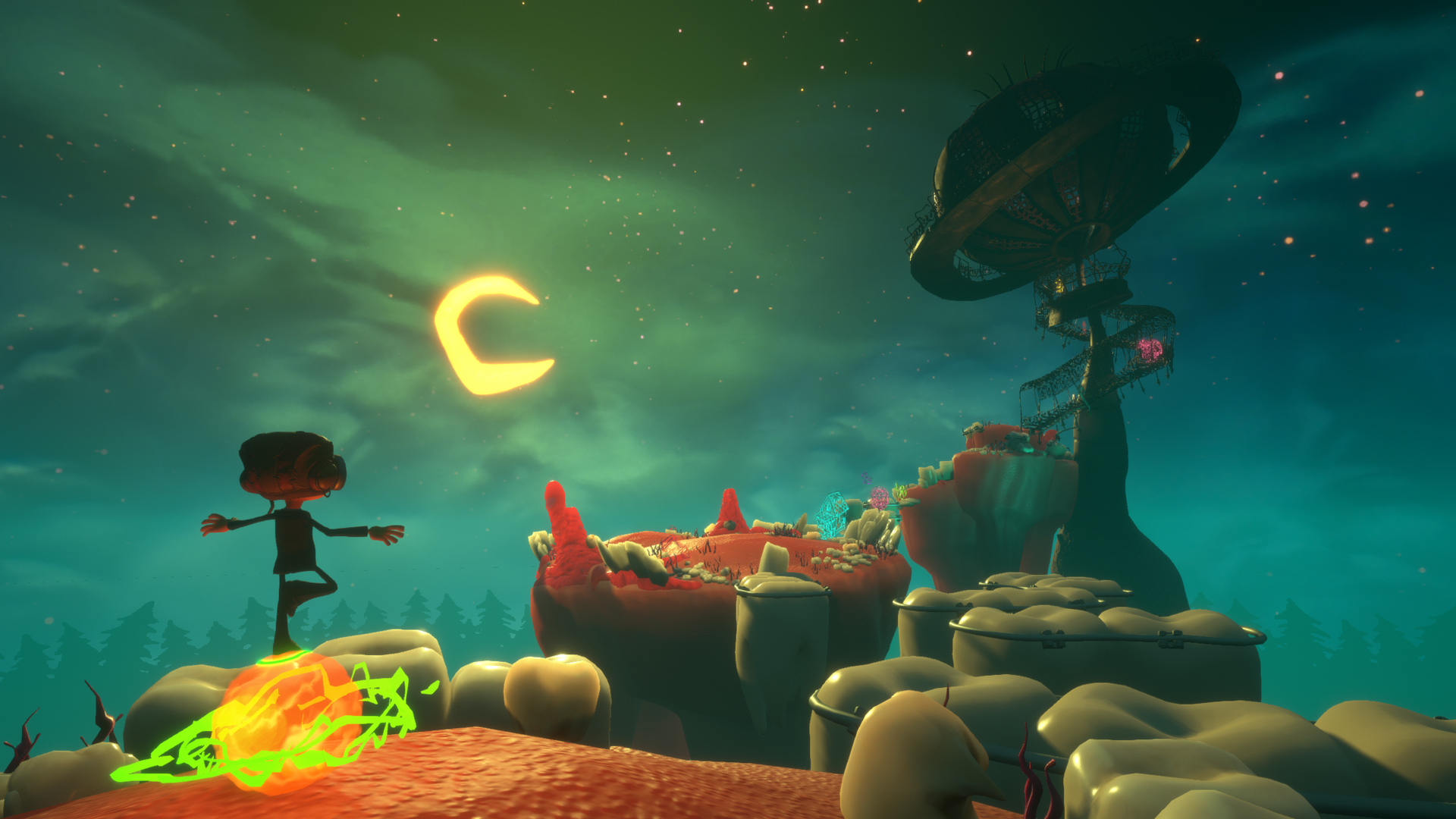
"You take your best shot, run away, and hope people will tell you later that it's funny"
Tim Schafer, studio head
It's a miracle that Psychonauts 2 exists. Not because of the series' status as a cult classic, not because of all the trials and tribulations Double Fine has had to endure to get here, and not because it necessitated 24,109 players to invest $3,829,024 to get Psychonauts 2 into production. It's a miracle that Double Fine will be able to regale the world with its playable psychedelia on August 25 because it feels like an anomaly, a big-budget game that is able to walk this tightrope between improvisational comedy and tightly crafted action. There's nothing out there quite like Psychonauts 2 right now.
That Double Fine has been able to build a cinematic platform adventure game with so much heart, nuance, and diversity of experience – all while keeping a smile carved between your cheeks – is frankly a little outrageous. Schafer doesn't know how well it will be received, nor does he have (or want) a metric for measuring Psychonauts 2's success as a comedy. He just knows that Double Fine has put its all into this game. Now, all they can do is wait and see. "You don't want to measure that. That's just something you don't want to measure," he tells me, laughing. "You just do your best and then you just hope… You take your best shot, run away, and hope people will tell you later that it's funny."
With development of Psychonauts 2 wrapping up and the studio now part of the Xbox Game Studios network, many are wondering what's next for Double Fine. Tim Schafer tells us that it (probably) won't be Psychonauts 3.
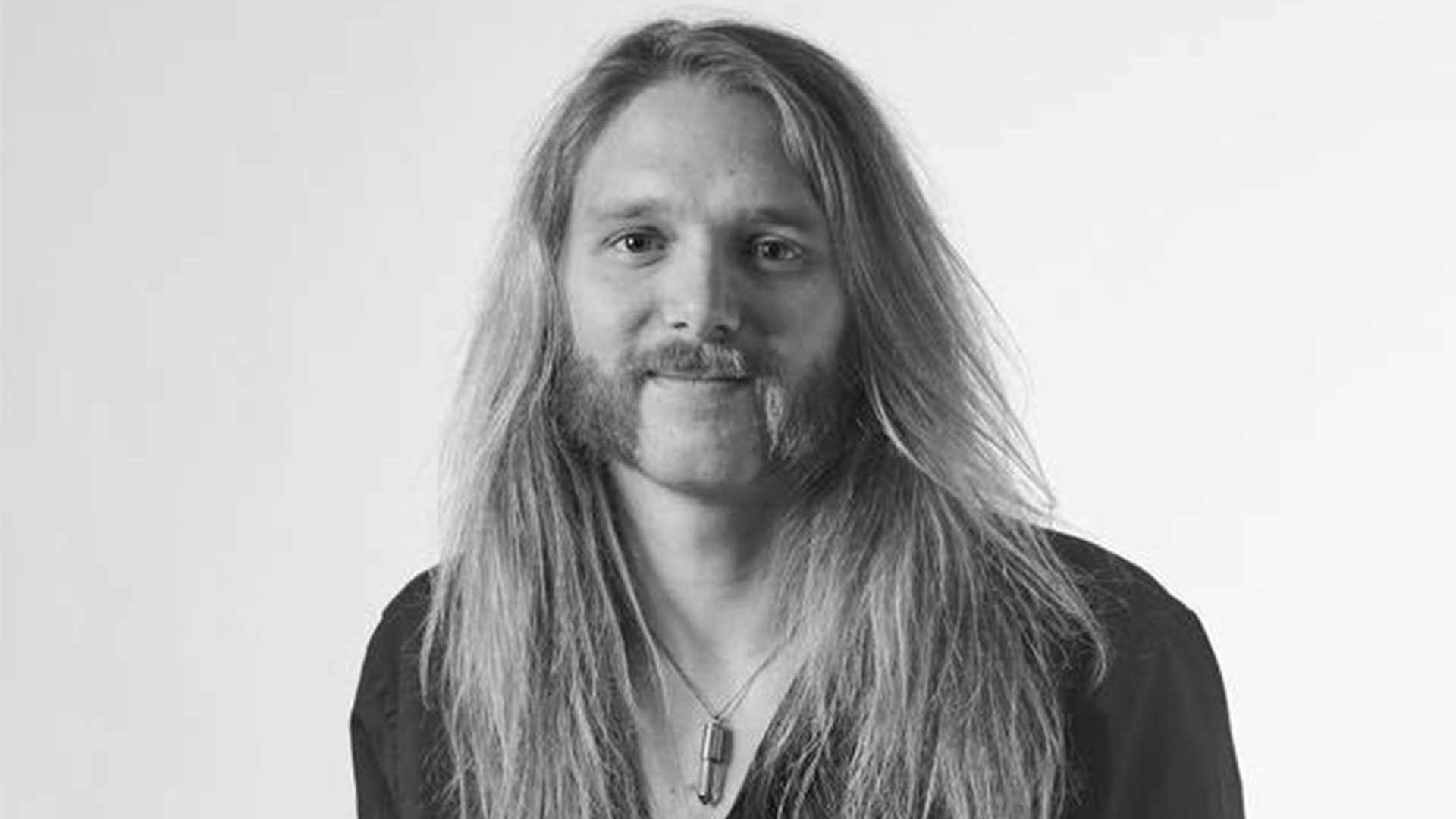
Josh West is the Editor-in-Chief of GamesRadar+. He has over 15 years experience in online and print journalism, and holds a BA (Hons) in Journalism and Feature Writing. Prior to starting his current position, Josh has served as GR+'s Features Editor and Deputy Editor of games™ magazine, and has freelanced for numerous publications including 3D Artist, Edge magazine, iCreate, Metal Hammer, Play, Retro Gamer, and SFX. Additionally, he has appeared on the BBC and ITV to provide expert comment, written for Scholastic books, edited a book for Hachette, and worked as the Assistant Producer of the Future Games Show. In his spare time, Josh likes to play bass guitar and video games. Years ago, he was in a few movies and TV shows that you've definitely seen but will never be able to spot him in.


